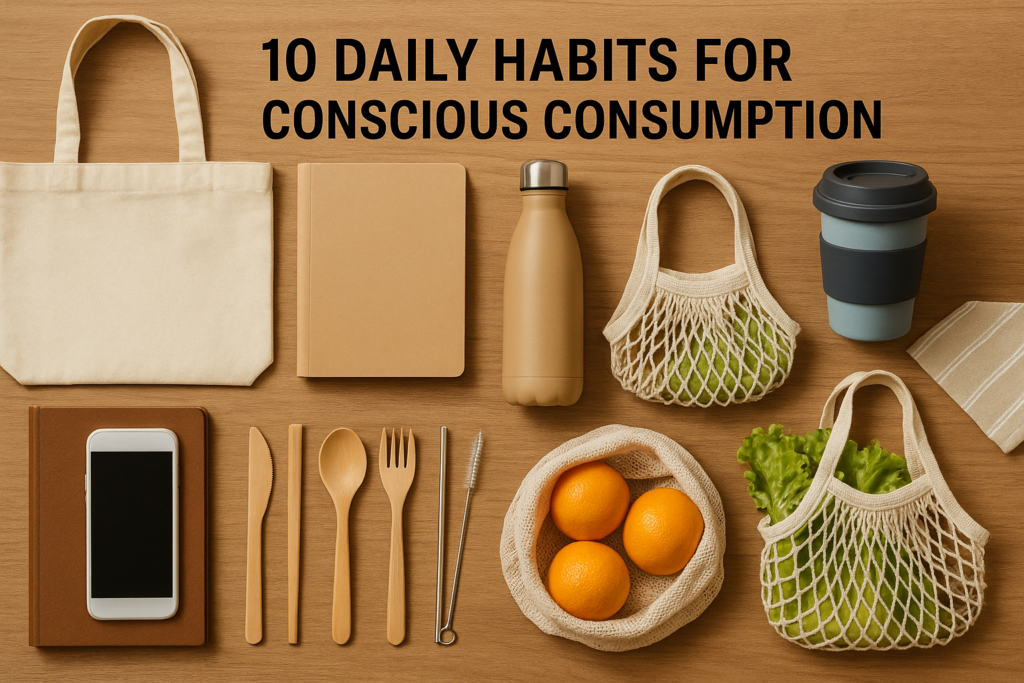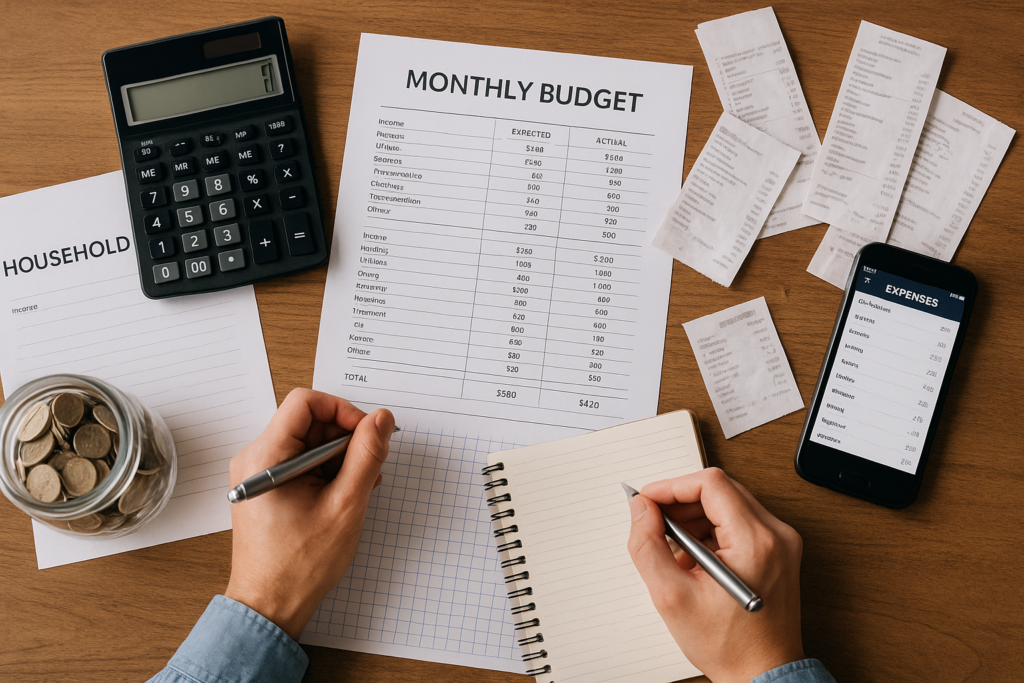
Conscious consumption isn’t about becoming a minimalist overnight or never spending money again. It’s about making thoughtful, intentional choices in what you buy, use, and discard—ensuring your actions align with your values and reduce harm to the planet, your wallet, and society. Developing small, sustainable habits can create a powerful ripple effect.
Here are 10 daily habits that will help you adopt conscious consumption without sacrificing comfort or convenience.
1. Start Your Day with Reusable Items
The first hour of your day often sets the tone for your mindset and habits. Instead of reaching for disposable items:
- Use a reusable coffee cup or mug instead of a paper or plastic one.
- Drink water from a reusable bottle.
- Keep a metal straw handy instead of using plastic ones.
These minor changes reduce waste and help build a daily awareness of the items you consume.
2. Plan Your Meals and Shop with Purpose
Food waste is a major global issue, and much of it happens in our homes. One way to combat this is to be intentional with your grocery shopping.
- Make a weekly meal plan and grocery list before shopping.
- Stick to the list to avoid impulse purchases.
- Avoid overbuying perishables that could spoil.
- Choose local or seasonal produce when possible.
Planning your meals reduces waste, saves money, and supports a more sustainable food system.
3. Avoid Impulse Buying by Pausing
Impulse buying is a major barrier to conscious consumption. Here’s a simple trick:
- If you feel an urge to buy something, wait 24 hours.
- During that time, ask yourself:
- Do I really need this?
- Will I still want it in a week?
- Do I already own something similar?
Often, the initial desire fades, and you realize it wasn’t worth buying after all.
4. Reuse Before Replacing
Many items we discard daily could be reused or repurposed. Get creative:
- Use old jars for storage.
- Turn worn-out clothes into rags or DIY projects.
- Save boxes for organizing items around the house.
This habit not only reduces waste but also increases the lifespan of the things you already own.
5. Choose Quality Over Quantity
Fast fashion and cheap products often seem like a good deal but have hidden long-term costs. Instead:
- Invest in higher-quality items that last longer.
- Support ethical brands that use sustainable practices.
- Repair items instead of replacing them immediately.
This mindset leads to fewer purchases, less waste, and long-term savings.
6. Declutter and Donate Responsibly
Decluttering is not just about tidying your home—it’s also about being intentional about what stays in your life.
- Regularly assess what you own and donate what you no longer use.
- Ensure donations go to reputable charities or local organizations that can truly make use of them.
- Avoid treating donations like a dumping ground—items should be clean and in good condition.
This keeps useful items in circulation and helps those in need.
7. Reduce Single-Use Plastics
Plastic pollution is one of the most pressing environmental issues today. Make small daily switches:
- Carry a reusable shopping bag.
- Say no to plastic cutlery—bring your own if you eat out often.
- Choose products with minimal or recyclable packaging.
Once this becomes part of your daily routine, you’ll start noticing just how many plastic items you can do without.
8. Practice Mindful Digital Consumption
Conscious consumption also applies to how we use digital products and services:
- Unsubscribe from newsletters or promotions you no longer read.
- Delete unused apps or services that charge monthly fees.
- Be selective with online purchases, especially during sales or promotions.
Reducing digital clutter can improve mental clarity and reduce data center emissions—a lesser-known environmental factor.
9. Support Local and Ethical Businesses
Where you spend your money matters. Make an effort to support businesses that reflect your values:
- Choose local farmers’ markets, artisans, or ethical shops.
- Ask questions about how and where products are made.
- Look for certifications like Fair Trade, Organic, or B Corp.
Your purchases can help build stronger local economies and promote fair labor practices.
10. Reflect on Your Consumption Daily
End your day by taking a minute to reflect:
- What did I consume today?
- Was it necessary?
- What could I have done differently?
You don’t need to be perfect—progress is more important than perfection. Keeping a simple journal or mental note encourages accountability and helps you stay on track.
Small Habits, Big Impact
The key to conscious consumption isn’t dramatic lifestyle overhauls—it’s building consistent habits that support sustainable, thoughtful living. These small actions, repeated daily, not only reduce your environmental footprint but also improve your financial well-being and sense of purpose.
Start with just one habit from this list and focus on it for a week. Once it becomes second nature, add another. Before you know it, you’ll be living a life that’s more aligned with your values—without the stress or pressure of doing everything at once.
